Monday, November 3, I attended a memorial gathering in eastern Poland in a little town, Orla (in Polish “of the eagles”), near Bialystok. Jews once made up at least 2/3 of the inhabitants of this now Polish-Byelorussian village, but seventy-two years ago they were carted away to their death. Today, the synagogue once proud stands as a silent demanding presence. The pre-World War II Polish government restored the synagogue after a 1938 fire. The beauty of the murals is fading away. The cemetery is sinking into oblivion.
City officials tried to preserve and even restore the synagogue that was used as a magazine for storing manure in German Nazi times. A few synagogues in Poland are fortunate enough to be used as community centers and teaching facilities but many are being allowed to crumble away because of the indifference of the official Orthodox Jewish community’s plan to allow the buildings to rot and then sell off the land. The day before this gathering the roof literally caved in on a Gdansk synagogue.
In their reluctant and yet bold teenage way, and armed with a few phrases from their Irish-accented English taught to them by their teacher, they gathered to meet three or four Jews imported from Warsaw and Bialystok. The memorial service was marred by the presence of Messianic Jews masquerading as Jews to the unsuspecting towns people. A mixture of sad Jewish music and church melodies in Hebrew added a surreal touch.The teenagers who were studying about the community that they now inhabit made up 60 per cent of the audience and the rest were elderly retirees and the ubiquitous reporters and city officials.
I was recruited in the last minute by the national secretary of Beit Polska, to recite a Psalm and read memorial prayers. It had been seventy two years since a Jewish voice last prayed out loud in the Orla synagogue.
The request to return the gravestones (matzevot) recalled the recent controversial Polish film “Aftermath.”
|
“Aftermath“, a profound Polish film related to this blog will be shown at Beit T’Shuvah Rabbi Mark Borovitz and Rabbi Haim Beliak will participate in a discussion after the film RSVP required. Please email tnykin@beittshuvah.org |
As often happens at these events the most moving things happen off camera and when everything is “over.” An elderly woman pictured here in a red cap approached us after we had recited the names of 30 of nearly 2000 people who were sent by the Nazi Germans to their death. She asked if we could “send a priest to pick up the gravestone in her yard?” Then another person in his late thirties came over and asked if someone could come properly move two gravestones he had taken out of someone’s barn and was keeping safe at home. Many of the stones had been used by previous inhabitants as building material. Now, one of the people of Orla said “We have been asleep. Thank you for waking us up”: the new inhabitants are seeking to undo a wrong that they inherited in their yards and barns.
Earlier the students led by teachers and in the presence of the mayor and other county officials and about one hundred townspeople learned about the history of the Jewish community that was removed seventy years before. In well-produced student interviews elderly members of the community reminisced about their childhood friends who were taken away and murdered in Treblinka.
We discussed customs of how one visits a Jewish cemetery; placing a reminder of a stone. Days earlier Poland marked All Saints’ Day with glass enclosed candles. In markets and on roadside and in Catholic cemeteries myriads of candleholders lit the gloomy night as people visited their dead. Also the Jewish cemeteries where visited by well-meaning Poles deploying cninz, tiny memorial candles encased in glass to mark visited graves. Gathered in a huddle the 330 names of Orla’s last Jews were recited in circle with candles left over from the day before.
| The local Polish press covered the visit to Orla here. |
- Orla, photo © Basia Adamowicz
- At the cemetery
- reading-names
- Orla, photo © Basia Adamowicz
- Orla, photo © Basia Adamowicz
- Orla, photo © Basia Adamowicz
- Orla, photo © Basia Adamowicz
- Orla, photo © Basia Adamowicz
- cemetery
- Orla, photo © Basia Adamowicz
- Orla, photo © Basia Adamowicz
- inside-the-synagogue-Darek-
- Orla, photo © Basia Adamowicz
- in-the-synagogue-an-Orla-of
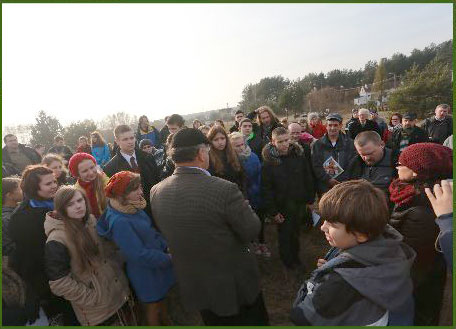
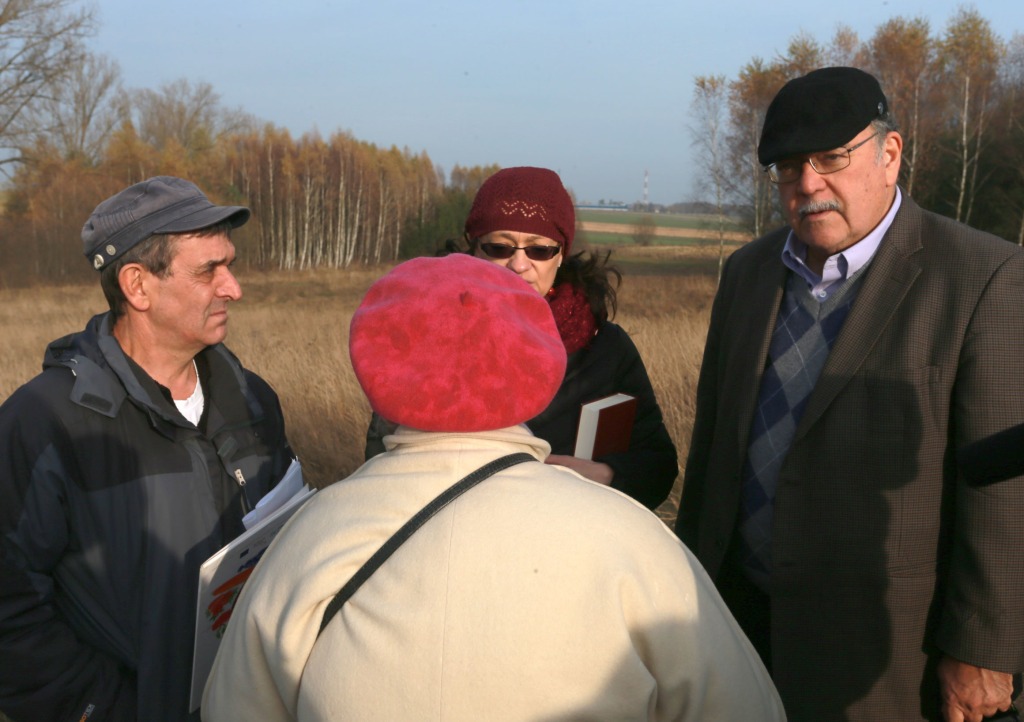
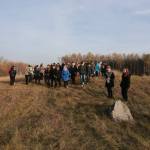
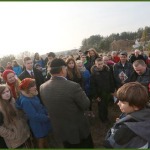
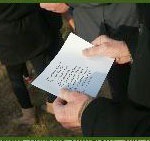
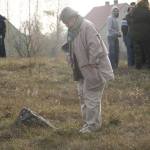
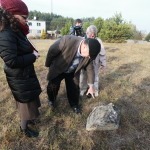
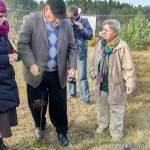
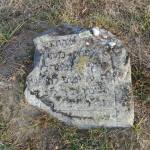


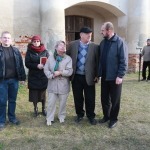
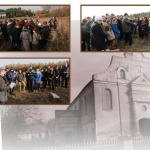
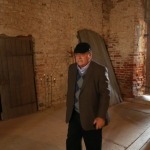
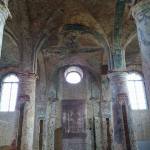
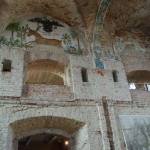
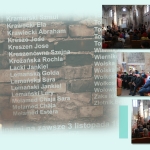
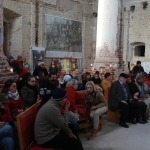
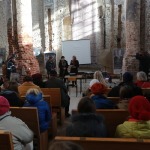
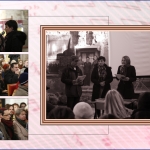
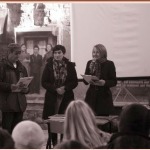
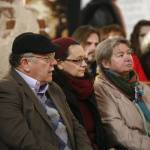
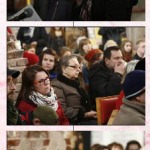
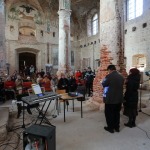

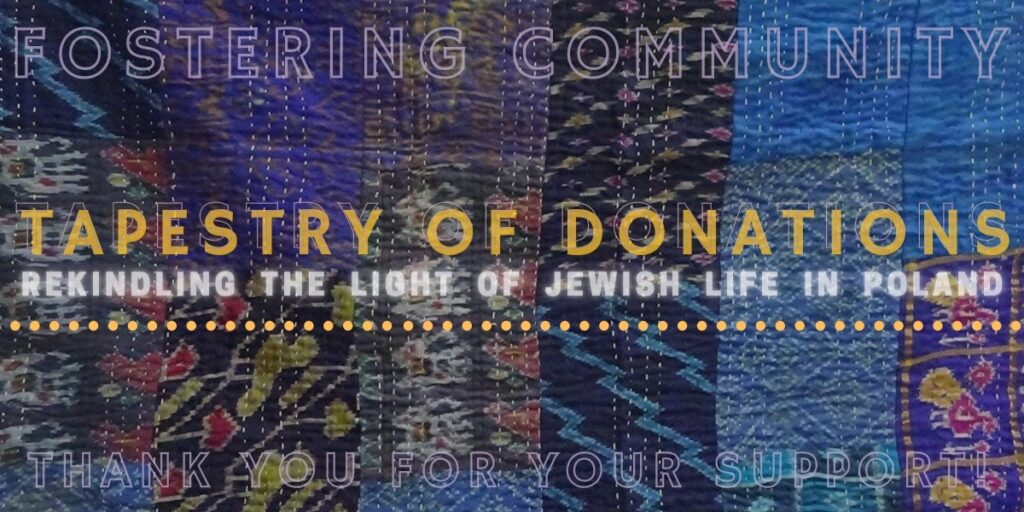
Thanks Haim for posting your powerful description of this event of recognizing and remembering a past so indifferently erased, mindlessly forgotten, and too often disguised by propagandists as something else.
Where might I find a list of those who lived in this town and were deported? Thank you so very much for the mitzvah you performed there.
Yad Veshem would be the place to find such a list.